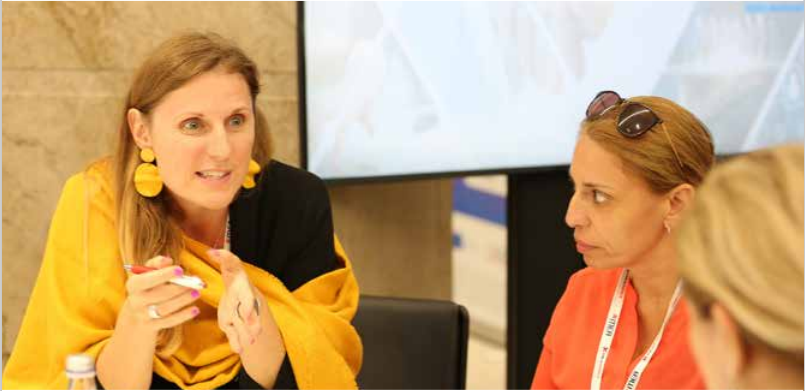Foreign Workers in the Logistics Industry – Addressing HR Challenges
Malta is a tiny island country in the Mediterranean that has seen significant expansion in the logistics sector. The rise of foreign workers is closely related to this expansion. Any economy depends on the logistics industry to maintain the smooth flow of goods and services both locally and globally. Due to Malta’s advantageous position as a transshipment and commercial hub, foreign labor is essential to maintaining and driving this prosperity. They have increased workforce size and filled labor shortages, allowing businesses to fulfill the rising demand for their services.
This article explores the crucial role of foreign workers in Malta’s thriving logistics sector, drawing insights from the recent report published by the Malta Employers’ Association about the 11th edition of the SME’s National Forum. The MEA also hosted a conference to delve deeper into these themes and identify solutions to the HR challenges faced by the industry.
Key Challenges
High Turnover Rates
The high rate of turnover among foreign workers has been noted as one of the major concerns. Many workers come to Malta temporarily, especially those from third-world countries, and save enough money to return home. Companies, organizations, and other stakeholders face a great deal of challenges as a result of this development. In order to address this, long-term employment solutions that produce a more stable and productive workforce are needed. Improved chances for professional advancement, increased pay, and making it easier for employees to relocate their families to Malta are a few potential solutions.
Skills and Training Gaps
Due to a lack of training, Malta’s logistics sector still mainly relies on untrained workers. There is a clear skills gap in the business, thus training initiatives that emphasize both technical and cultural sensitivity are needed. Foreign workers must adapt to the rapid advancements in logistics technologies, which calls for ongoing education and training programs
Language and Cultural Barriers
Language obstacles might make it difficult for workers to integrate and communicate effectively. Furthermore, cultural differences can make it difficult to build a cohesive workplace. Creating thorough integration programs that include “buddy” systems, pre-departure integration procedures, and mentorship can help to reduce these problems and increase worker retention.
Social and Economic Integration
Addressing Exploitation and Inequality
It is essential to guarantee that international laborers receive the same treatment as their domestic colleagues. Strong labor laws and close supervision are required to prevent any exploitation, which raises worries. Maintaining a motivated and steady workforce requires better pay and working conditions.
Enhancing Social Cohesion
Prioritizing the social impact and welfare of foreign laborers is crucial. In addition to maybe having a bad work-life balance, many overseas workers send money home to their families. Feelings of loneliness might result from having fewer social groups and longer work hours. Their general well-being will be improved by promoting social integration and resolving microaggressions in communities.
Simplifying Administrative Processes
Simplifying the procedure for acquiring work permits and other required paperwork is crucial. Extended waiting times may make it difficult for employees to begin work on time, which could cause financial instability. Immigrant workers will be able to settle and contribute to the economy more successfully if these procedures are made simpler.
Recommendations for Employers
Addressing Workforce Gaps
Maltese laborers frequently refuse to perform heavy lifting, hard labor, night shifts, or weekend labor. Therefore, foreign labor fills these voids, especially in fields like construction, catering, caregiving, and the environment. To increase the employability of foreign workers, companies are investing in their retraining and training; nevertheless, long-term workforce development should not be sacrificed for this purpose.
Promoting Long-Term Employment
Employers ought to concentrate on giving international employees a more permanent “home.” Reducing turnover and improving job satisfaction can be achieved by integrating them into society and encouraging family reunion. Consequently, this will reduce the need for retraining and raise output all around.
In conclusion, all parties must work together to address the HR issues facing Malta’s logistics sector. To understand the true situation, one must put away sentimental or hostile points of view. HR planning can be enhanced and economies of scale can be realized by creating a national strategy, assigning a task force of experts to address demographic challenges, and implementing a “pilot-analysis” approach in the logistics industry, as suggested by the Malta Employer Association, MEA. By taking these actions, Malta’s logistics sector will continue to grow and prosper, improving the welfare of foreign workers and the country at large.



